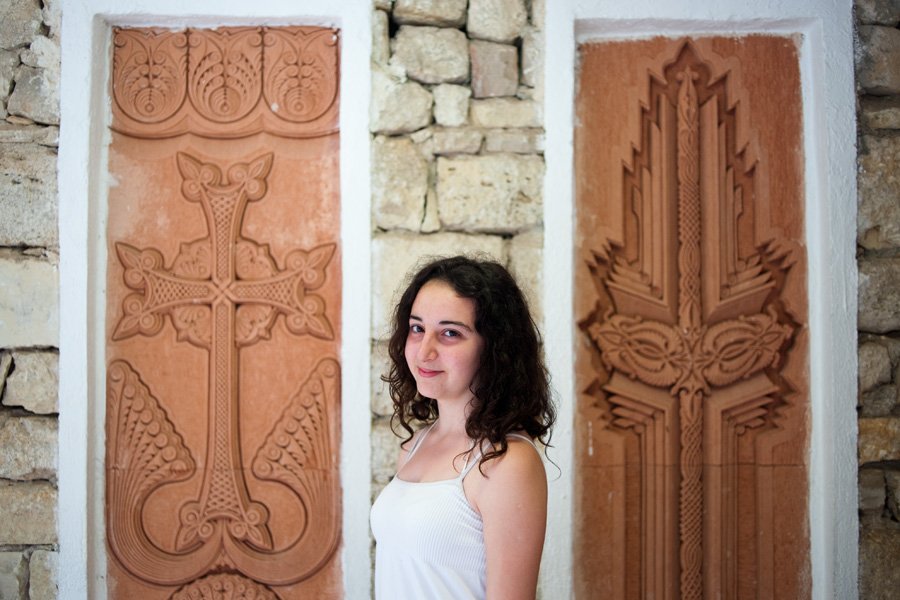Melina Kartun in 1 photograph and 464 words
Melina Kartun, 15, is smart. She listens with ease and intelligence, and her mind is analytical. Her manner is no-nonsense, she speaks with confidence and authority, and she has, with the careless wisdom of youth, figured out life. “I’m going to study psychology,” she says matter-of-factly. “I like to talk to people, and I like to listen to people.” “No, she just likes gossip,” Melina’s mother, Kuhar, interrupts. “She’ll get all the gossip from the patients.” Exasperated, Melina answers, “Of course not.” “No, you’ll take an oath,” Kuhar concedes. Melina nods. She shakes her ripples of black curls across her back and crosses her arms over her chest. She is pretty and petite, an athlete – she loves to play volleyball – and a scholar. She studies at an Armenian high school, Esayan, in Istanbul, where she lives with her aunt. She loves the bustle of the big city, she says, but she misses Vakıflı. “Time moves a lot faster here [than in Istanbul].” On this night, however, time seeps by. Surrounded by her family – her mother, her father, her paternal and maternal grandmothers – Melina is relaxed and happy. She cuts through the tender flesh of a peach while she talks and periodically gathers up dishes to take to the kitchen. “[Vakıflı] feels very beautiful,” she says wistfully. She’ll return to the city in a matter of weeks, so she’s soaking up what she can of her family. Her older sister, Lori, with whom she gets along best, is inside the modest house studying for her college entrance exams. Her twin brother, Kami, is out playing sports with other boys from the neighborhood. She complains about him, but her grievances are delivered with affection. “Kami’s way of showing his love is very vulgar,” she says. “He’ll tease me and mess with me, and when I threaten to tell on him, he says, ‘I was just going to give you a kiss!’” She rolls deep brown eyes. “I’m organized, he’s disorganized,” she continues. “When we were in elementary school, I would pack his school bag for him.” She pokes at her peach pit with the tip of her knife, pushing the wrinkled nut around her plate. For all of her irritation at her absent sibling, she will miss him when she leaves. Her ambitions, it seems, will take her far from her family and her village. The closest university, Mustafa Kemal University, doesn’t have a psychology department. Like most adolescents on the cusp of adulthood, she is beginning to feel the twin edges of freedom and homesickness. But, in her rational manner, she is prepared for the challenges of leaving home and pursuing her dream career. “She’ll deal with the crazies,” her maternal grandmother, Bayzar Silahlı, says. “No, not the crazies,” Melina laughs. “Just people with problems.” |
